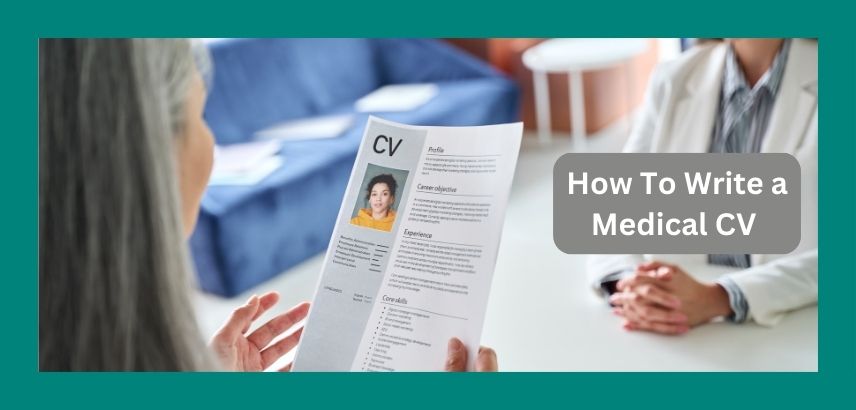Your CV is one of the most important tools you have when it comes to your medical career. It’s a document that summarizes your skills, experience, and education, and it’s what potential employers will use to decide if you’re a good fit for the job. That’s why it’s important to make sure your CV is well-written and error-free. Here are some tips on how to write a medical CV that will impress potential employers:
- Start with a strong summary statement
Your summary statement is a brief paragraph that introduces you and highlights your skills and experience. It should be clear, concise, and tailored to the specific job you’re applying for.
- List your education and qualifications
Your education and qualifications are the foundation of your CV. Be sure to list all of your degrees and certifications, as well as any relevant training or courses you’ve taken.
- Highlight your clinical experience
Your clinical experience is one of the most important things that potential employers will look at. Be sure to list all of your relevant clinical experience, including the type of work you did, the setting you worked in, and the length of time you were there.
- Include your research experience
If you have any research experience, be sure to include it on your CV. This shows potential employers that you’re also interested in advancing medical knowledge.
- Include your skills
In addition to your education, experience, and research, you should also include a list of your skills on your CV. This could include both hard skills (such as proficiency in medical software) and soft skills (such as communication and teamwork).
- Proofread your CV carefully
Before you submit your CV, be sure to proofread it carefully for any errors in grammar or spelling. A well-written CV will make a positive impression on potential employers and show that you’re detail-oriented.
- Get feedback
Once you’ve proofread your CV, it’s a good idea to get feedback from someone else, such as a friend, colleague, or career counsellor. They can help you catch any errors you may have missed and give you suggestions on how to improve your CV.
- Tailor your CV to each job you apply for
When you’re applying for a job, be sure to tailor your CV to the specific position. This means highlighting the skills and experience that are most relevant to the job and omitting any information that’s not relevant.
- Keep your CV concise
Your CV should be no more than two pages long. If you have a lot of experience, you may need to be selective about what you include. Focus on the most relevant information and omit anything that’s not necessary.
Following these tips will help you write a medical CV that will impress potential employers and increase your chances of getting the job you want.
